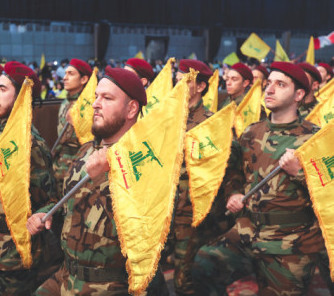When Vladimir Putin congratulated Recep Tayyip Erdogan on the AK party’s (Justice and Development conservative party) election results during their phone-call on Monday, he most likely did so with a broad smile on his face. Given that the ostensive purpose of that conversation was to discuss preparations for the upcoming session of the Russian-Turkish Cooperation Council, scheduled for April 8th, from a Russian point of view, the timing of the AK party’s electoral setbacks on March 31st could not have been more perfect.
In a reverse which might be described as a political earthquake, Mr. Erdogan’s party lost mayoral and municipal elections in Ankara, Instanbul and Izmir in Sunday’s voting. The secularist CHP party (Kemalist and social-democratic Republican People’s party) is the principal beneficiary of this hemorrhaging of support for AK.
The concerns expressed by Turkish voters in these elections are primarily economic – the Turkish Lira lost 28% of its value in 2018, and the nation’s currency reserves have been severely depleted in an attempt to support the currency. Overall unemployment has risen to 13.5% and youth-unemployment to 30%.
However, there is still an ideological issue in play – namely, Erdogan’s creeping desecularization of Turkey in recent years, and this issue cannot be completely separated from the downturn in Turkey’s economic fortunes. While Erdogan largely abandoned political Islamism 20 years ago in favour of a more secular populist conservatism, he and the AK party have increasingly gravitated back toward a political self-identification of Islamism in recent years. This shift has been motivated for primarily cynical reasons, insofar as Islamism was seen as the ideological glue which might underpin Turkey’s neo-Ottoman geo-strategic ambitions.
The geo-strategic overreach which has resulted from the neo-Ottoman project, and Turkey’s increasing tendency toward unilateralism, help to explain the trade-war which broke out between Turkey and the United States last year. We should also remember that, while the barriers to Turkish agricultural exports to Russia which were imposed in the wake of the November 2015 shooting down of the Russian Su-24 over Syrian airspace have since been removed, Turkey’s agricultural market-share in Russia has never recovered to the levels which existed before that incident. So Erdogan’s neo-Ottomanism has resulted in both Russia and the United States taking turns in economically retaliating against Turkey in the past 4 years.
Even before his ideological change of direction in 1998, Erdogan’s Islamism was nominal compared with variants of political Islam found elsewhere in the Islamic world. The Turkish people understand that, whatever about his attempts to re-brand himself as more resolutely Islamist in recent years, his Islamism ultimately serves neo-Ottomanism and not the other way around. They understand that Erdogan’s mindset is primarily technocratic, and most Turks probably prefer Erdogan the technocrat to Erdogan the Islamist.
So while it is important to emphasize that Islamism is primarily an ideological vehicle of convenience for the AK party’s geo-strategic agenda, and is therefore not the root-cause of Turkey’s current economic difficulties, it has nonetheless played an ideological role in the sequence of foreign policy misadventures which have brought the Turkish economy to where it is right now. On Sunday, the Turkish electorate reacted, not against the economic consequences of Islamism, but against the economic consequences of neo-Ottomanism, of which Islamism is merely an ideological instrument of convenience.
This is why Sunday’s election results should be very pleasing to Russia’s political leadership. Insofar as the Turkish electorate has sent Mr. Erdogan a clear signal that in attempting to project power abroad, he is hemorrhaging political support on the home-front, it undermines his long-term goal of Turkey rebuilding a sphere of influence among the various Turkic language-groups in Central Asia. Insofar as there is seen to be less domestic political scope in Turkey for either neo-Ottomanism or its ideological correlate (Islamism), Moscow will doubtlessly greet Sunday’s Turkish election-results as good news. It is a geo-strategic imperative that the post-Soviet central Asian republics remain firmly and unambiguously within Russia’s sphere of influence.
Considering Turkey’s status as a geo-strategic pivot and its geography making it, at least arguably, NATO’s second most important member-state, it is entirely understandable that the Russian government should seek the rapprochement with Turkey which we have seen over the past 3 years. In successfully courting Turkey, Russia severely weakens the reach of the NATO-alliance.
However, precisely the same geographical fundamentals which make Turkey such a key component of the NATO-alliance, added to the demographics of the post-Soviet Central Asian republics, also means that Russia and Turkey are eternal competitors in Central Asia. Ultimately, they can have a non-hostile relationship only insofar as Turkey is too weak to entertain either expansionist ambitions or ambitions toward carving out its own sphere of influence in central Asia or in the Middle East. Political Islamism would be an incidental ideological component of either project, as it gives any such neo-Ottoman project more ideological reach.
In the final analysis, Russia can maintain non-hostile relations only with a comparatively secular Turkey. This is why the Kremlin is likely to see Sunday’s election-results as a welcome corrective.









